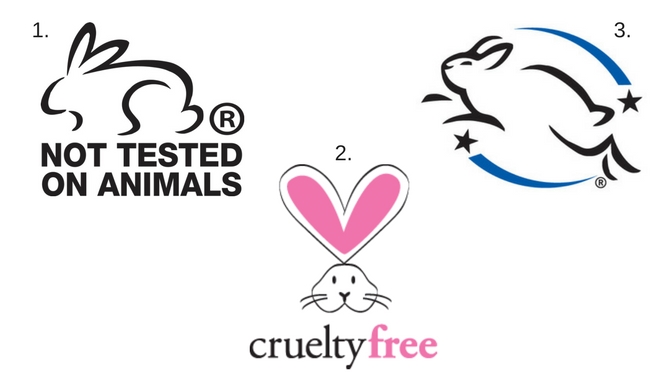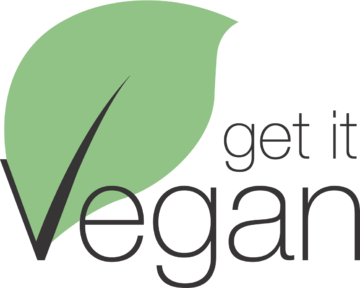Primer
Vegan and cruelty-free primer. Whether you're buying for yourself, or for the cruelty-free woman in your life, you can shop with the assurance that all of the makeup products we list on Get it Vegan, including the primer found below, are 100% free of animal by-products, ingredients and testing.
Primer
What is ‘vegan’ & ‘cruelty-free’ primer?
The term “vegan”, with regard to primer, refers to primer that doesn’t contain ingredients that are derived or sourced from animals or insects, whereas the term “cruelty-free” refers to primer that's free of animal testing, including the individual ingredients used its formulation.
In other words, ‘cruelty-free’ refers to the testing methods, while ‘vegan’ refers to the origin of the primer’s ingredients.
What animal and insect-derived ingredients are commonly used in primer?
While it certainly isn’t exhaustive, we’ve put together a list of the most common animal and insect-derived ingredients that are used in non-vegan primer.
We’ve also included the origins of these ingredients, their aliases, their purposes in primer, and some of their animal-friendly alternatives. We’ve also included some of their aliases.
Squalene: Typically derived from shark livers, it’s used in primer and other cosmetics as a moisturizer, and for it’s reported anti-aging effects.
- Aliases: Shark Liver Oil; Squalane.
- Vegan alternatives to squalene: Plant-based oils, most notably olive oil and palm oil.
Hyaluronic Acid: Natural hyaluronic acid is typically derived from rooster combs. It's typically included in primer to function as a moisturizer, and much like squalene, for its reported anti-aging properties.
- Aliases: Acide Hyaluronan, Hyaluronate Sodium, Hylan, Sodium Hyaluronate.
- Vegan alternatives to hyaluronic acid: Synthetic hyaluronic acid and plant oils.
Amino Acids: The building blocks of protein in animals and plants. Often derived from animal sources such as urine and horsehair. Used in primer as skin conditioning agents.
- Aliases: Tyrosene, Cystine, Glutamic Acid, Glutamine, Potassium Aspartate, Sodium Aspartate.
- Vegan alternatives to amino acids: synthetics, plant-based amino acids.
Lecithin: A waxy substance in nervous tissue of all living organisms. But frequently obtained for commercial purposes from eggs and soybeans. It can also be obtained from nerve tissue, blood, milk, corn. Lecithin can be found in both liquid and powder cosmetics, and is used as a skin conditioner and an emulsifying agent.
- Aliases: Choline Bitartrate
- Vegan alternatives to lecithin: Soybean lecithin, Synthetics.
Tallow: The process of making tallow involves boiling the carcasses of slaughtered animals until a fatty substance is produced. These carcasses can come from a myriad of sources, such as labs, slaughterhouses, zoos, shelters, and ‘roadkill’. Tallow is primarily used in primer as an emollient, to help soften the skin.
- Aliases: Tallow Fatty Alcohol; Stearic Acid; Oleic Acid; Linoleic Acid; Rendered beef fat.
- Vegan alternatives to tallow: Vegetable tallow, Japan tallow, Ceresin.
Watch Out! If a primer label has an ingredient listed as from “Natural Sources”, it can mean either animal or plant-based sources. Most often in cosmetics it means animal sources, such as animal elastin, glands, fat, protein, and oil.
Is “not tested on animals” the same as “cruelty-free”?
When shopping for primer, you’re sure to come across of myriad of statements on labels that are used to subtly mislead consumers into believing that the primer they’re buying is 100% cruelty-free.
Unfortunately, since these terms are unregulated, companies can essentially use them in any way they see fit, much in the same way that sugary breakfast bars use the term “natural ingredients” on their packaging. It really means nothing.
For example, here are some common misleading statements you might find on a primer’s label, and what they actually mean:
“Against animal testing”
- Just words on a box. This could mean that the company is opposed to animal testing, but does it anyways.
“We don’t test on animals”
- This primer was not tested on animals, but its individual ingredients were.
“Cruelty-free”
- Could mean anything, without 3rd party verification, they’re expecting you to take it on blind faith. Oftentimes it’s an outright lie.
So then how can I be sure the primer I’m buying is cruelty-free?
Despite the rampant deception in the cosmetics world, there are several legitimate third party certification bodies that independently assess whether or not companies and products are actually abiding by recognized cruelty-free standards.
So, the best way to ensure that you’re buying a cruelty-free primer is to find one that has the symbol of one of these third party certification bodies printed on it. 3 of the most common cruelty-free symbols include:

- Choose Cruelty Free Ltd.
- PETA
- The Coalition for Consumer Information on Cosmetics - Leaping Bunny Program
Don’t be fooled! Because these certification bodies all use images of bunnies, so do scammers. Before buying a primer, make sure you familiarize yourself with the logos above, so you don’t get tricked into buying something that’s not actually certified as cruelty-free just because there’s a picture of a bunny on it.
What brands make vegan & cruelty-free primer?
Primer that’s vegan and cruelty-free can be very hard to find. Fortunately, the following brands exclusively make primer (and in some cases setting spray and setting powder) that’s full vegan and cruelty-free, in other words, completely animal-friendly!
- 100% Pure
- ADORN Cosmetics
- Aesthetica
- DeVita
- e.l.f. Cosmetics
- Gabriel Cosmetics
- INIKA
Please Note: For the sake of simplicity, this list does not include brands that have ‘vegan options’ for primer; it only includes companies whose primer products are completely vegan and cruelty-free.
Is vegan & cruelty-free primer expensive?
In general, vegan and cruelty-free luminous, mattifying and correcting primers are not any more expensive, or any less-expensive, than primer that contains animal derived or tested ingredients.
Just like alternative versions, the prices of vegan & cruelty-free primer can vary based on differences in the quality and the availability of the ingredients used, differences in the manufacturing processes employed, different brand names behind them, as well as a myriad of other factors.
Why should I buy ‘vegan’ & ‘cruelty-free’ primer?
Aside from the ‘icky factor’ of having animal ligaments and fat smeared on your face, it’s important to buy primer that you know is vegan & cruelty-free because it creates demand for vegan and cruelty-free products, reduces demand for non-vegan/non-cruelty-free products, and is thus a very effective form of animal-welfare activism.
Basically, if we as consumers stop paying companies to put these grotesque and cruelty-ridden ingredients in primers and other cosmetics, they will stop doing it. This is referred to as ‘voting with your dollars’.
Similar product categories
If you’ve found this page on vegan and cruelty-free primer helpful, check out similar product categories to learn or shop more:
For companies that make vegan & cruelty-free primer
If you make vegan and cruelty-free mattifying, correcting or luminous primer, or any other vegan/cruelty-free cosmetics for that matter, we’d love to feature you and your products on the “Brands We Love” section of our site! Contact us at - info(at)getitvegan(dot)com - to get started!
Sources
Some of the information for this guide on vegan & cruelty-free primer was gathered from the following sources:
- Living: “Animal-Derived Ingredients List.” (n.d.). PETA. Retrieved June 28, 2017. https://www.peta.org/living/other/animal-ingredients-list/
- Blog: “Are Your Cosmetics Vegan?” Kourtney Linebaugh (October 27, 2012). Gentle World. Retrieved June 28, 2017. http://gentleworld.org/are-your-cosmetics-vegan/
- Resources: “Watch Out For These Cruelty-Free Labelling Loopholes!” Vicky Ly (July 30, 2015). Gentle World. Retrieved June 28, 2017. http://ethicalelephant.com/cruelty-free-loopholes/
- Lifestyle: “Vegan Beauty - Animal-Free Skin Care and Makeup.” Leah Payne (February 1, 2017). Alive.com. Retrieved June 28, 2017. http://www.alive.com/lifestyle/vegan-beauty/



